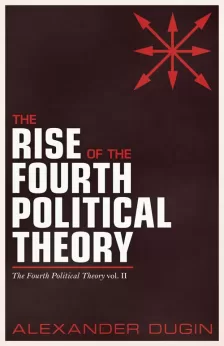I was born, grew up and spent much of my life in London. My childhood spanned the 1980s, during which Margaret Thatcher’s Conservative government restored an economy devastated by years of Labour rule. While I was too young to understand what was happening politically, I remember a cultural zeitgeist reflected in what felt like a spirit of optimism. The 80s turned out to be an unforgettable decade for music, not only because of the novel sounds resulting from advances in synthesizer technology, but the high energy, generally positive lyrics and uplifting melodies which characterised it in addition to the immense creativity in songwriting. 1980s Western pop music (mainly British, also American) was familiar and popular around the world.
The 1990s were somewhat different in this regard — many will argue that it was also a great decade in music, but in my perception at least it brought a different undercurrent into the mainstream. Grunge (Nirvana, Soundgarden, Mudhoney and others) was less upbeat to say the least. To quote Wikipedia:
Lyrics are typically angst-filled and introspective, often addressing themes such as social alienation, self-doubt, abuse, neglect, betrayal, social and emotional isolation, addiction, psychological trauma and a desire for freedom.
Successful Indie / rock bands like Radiohead also had a darker, more introspective vibe, again with lyrics more often focused on pain, disaffection and with the advent of Nu-metal (Korn, Linkin Park, Slipknot and many more) outright anger. In short, the spirit felt far more nihilistic in contrast to the previous decade. In addition, from the mid-nineties onward, black culture was very heavily pushed via channels like MTV, mainly in the form of rap music.
What I also remember was that although not entirely ethnically homogeneous, 1980s London was majority White. The last census results in 2022 revealed White British are officially a minority in London as well as Birmingham. In many boroughs of London White people are visibly a minority today. Spending most of my life to date in London meant I witnessed this change over several decades — something that will be forever stamped on my consciousness.
I attended what was at that time a particularly left-wing primary school. Although most of the kids were White, there was a heavy emphasis on learning about foreign cultures. I remember very little about English history, or kings and queens, but lessons about Diwali, Hanukah, how to count in Urdu and coffee bean production in Kenya. There was also a frequent focus on racism, so we learned about ‘The Sharpeville Six’, South African apartheid and slavery. I remember one fiction book we had to read about a Pakistani boy in Britain bullied by a White kid and his friends. Children were made to sing songs abhorring racism and sexism in assembly.
I remember one incident, after children were instructed to watch out for any signs of racism and report them to teachers, whereby my parents were asked to come and discuss my having used ‘racist gestures’ with the headteacher. The accusations were false, and I knew where they had come from; two classmates, one Greek and one black. I was friendly with them both. I never really blamed them. We were very young — maybe seven or eight years old — and we were being programmed by radical teachers.
Aside from that incident, I can’t say I felt personally discriminated against the whole time, but even at that young age I certainly had the constant sense that the baddie was always the White man — and I knew full well that meant me.
I spent a chunk of my teenage years in what would now be described as a multicultural environment — and yet, I wasn’t acutely aware of the fact. For one thing, the word ‘multiculturalism’ didn’t even exist in popular use. Secondly, to me things seemed normal at the time, even if I can look back now and with hindsight, see just how much was wrong with it — the dysfunction and criminality around me, for one thing. I wrote before of my gradual racial awakening — not an overnight process but a culmination of half a lifetime seeing and experiencing the gradual demographic and cultural degradation of society in my home city. Even spending my teenage years around ‘diversity’ I didn’t think about race that much as a concept. Race was rarely discussed in the media.
About twelve years ago I remember being greeted with incredulity when remarking that there was a war on straight White men. It wouldn’t be long before such a conclusion would become hard to avoid.
I often think about the milieu I grew up in, compared to the one a young White boy or girl grows up in now. The younger generations of our people, especially those in major Western cities, are now actively and openly discriminated against. They face and are surrounded by uncloaked anti-White hatred.
Even should they be fortunate enough not to grow up as racial minorities in cities, surrounded by those of completely alien cultures and backgrounds, the hatred aimed at them is widespread in media, including mainstream journalism; in education (now so openly anti-White it makes my primary school appear benevolent in comparison); in advertising, in which Whites, particularly White men, are routinely ridiculed and portrayed as buffoons or cuckolds, with never-ending depictions of couples or families consisting of non-White men with White women; in law, with White men given greater prison sentences for so-called ‘hate speech’ than non-whites for robbing Whites of their lives; with ‘affirmative action’ policies which simply disempower and discriminate against Whites, and most significantly, mass, open-border third world immigration, both legal and illegal, transforming the demographics of nearly all Western White countries at breakneck speed.
Censorship preventing and often outlawing discussion of the above is being codified into law in many Western nations. These anti-White policies have the clear aim of barring us even from discussing our dispossession and racial replacement in a public way.
Politicians, often themselves foreigners of third world origin, display open loathing towards the native populations they are supposedly in office to serve, telling us there are too many of us in positions of power and that this has to change.
We are being written out of our own history. History books and television programmes, particularly those aimed at children and young adults, are now centred around revisionist lies that the building of our nations and greatest achievements are the work of non-Whites.
Away from mainstream media and on the less censored social media platforms like Twitter and TikTok, you will frequently see little snapshots of actual reality; White people being brutalised in their own homelands by people of foreign extraction. The smartphone clips circulating online of White teenagers attacked and beaten by packs of non-Whites, often resulting in serious injury, sometimes death, are too numerous to count. The footage often looks the same — never the one-on-one ‘fair and square’ fights I remember from my school days, but invariably groups of blacks and sometimes Arabs beating and stomping lone White kids, descending like packs of animals in school playgrounds, college hallways and streets all over the Western world.
This summary of outrages against our people is by no means exhaustive — for example, I haven’t touched on the vastly increased rates of rape and sexual harassment in multicultural cities, through which young women can no longer expect to feel safe walking alone at night, or the fact that vast amounts of native European taxpayer money is used by traitorous governments to fund our own displacement by allocating social benefits, including housing, healthcare and income support, to third world immigrants and their families. The list goes on and on.
If I grew up sensing anti-White sentiment at primary school as something like 2 or 3 on a dial out of 10, then kids of European extraction in many parts of the West today must be experiencing it as closer to 8 or 9 in multiple spheres, not only education. Small wonder then that nationalist and patriotic parties are doing so well with the younger generations across Europe and in the United States. With the caveat that overgeneralisation is risky, we’re not talking millennials here, who are one of the most left-wing generations in recent times — but their successors, Generation Z.
While the patterns are unmistakably there, we must bear in mind we’re comparing these generational cohorts across multiple countries. The timelines and histories of the assault on White demographics and identity have differed from nation to nation. If we use the boiling frogs analogy, the British have been getting boiled the slowest, incrementally and over a period of decades — whereas the Irish, until very recently a highly homogeneous nation of people relatively untouched by mass third world immigration, have been thrown straight into the boiling water. Over the last few years the native Irish have been subjected to what appears to be an intensive, accelerated programme to replace them with third world immigrants while silencing them and criminalising any dissent. The emerging consequences and pushback from this are unsurprising.
Accordingly, the experience of a Gen-Xer from London like myself will differ significantly from that of a Gen-Z Dubliner, even if we end up ideologically on the same page. The latter’s awakening has simply been fast-tracked in dramatic fashion.
Perhaps most analogous to Britain’s ‘slow boil’ are nations like the United States, which also started experiencing mass non-white immigration from the 1960s onwards. Sweden was also a relatively early adopter of very liberal immigration policies, particularly towards the third world, but being a small nation, the effects of these large numbers transformed society more observably quickly. As mentioned in my previous piece on remigration, there is a convincing argument that things often have to get worse before they get better. With the anti-immigration Sweden Democrats now in power via coalition, Sweden is now co-operating with its Scandinavian neighbours to organise large-scale deportations.
What newly elected right-winger Geert Wilders does about the Netherlands’ third world problems remains to be seen, but it seems clear he was elected by a populace deeply disaffected with mass immigration and its detrimental effects on the nation. Young voters aged 18-35 played a key part in his election.
My own experiences meeting younger people who would self-describe as pro-White, White nationalist or ethnonationalist have been illuminating. They tend to be highly intelligent, from a variety of countries, with an acute awareness of the problems our people now face and under absolutely no illusion that our salvation lies with the boomer conservatives who have so egregiously betrayed us by giving away our nations and our heritage. They are not unhinged. They are not violent, and they cannot reasonably be called radical (as someone pointed out on Twitter, wanting to preserve your homeland isn’t radical in the slightest. Engineering mass replacement of indigenous Whites in their homelands by third worlders is radical).
Stepping out of my own anecdotal experience (of which I have written more than enough here), trends like the growth of right-wing anti-immigration parties like Poland’s Konfederacja are encouraging, despite the recent election result. After all, people rarely grow more left-wing as they get older; the trend is usually the other way round. Germany’s AfD are increasingly popular with younger voters and the party is gaining footholds in regions throughout Germany, its overall share of the vote increasing all the time.
Countries like the UK, no doubt partly due to decades of slow-boiling, might be slower to turn things around. With England’s Indian prime minister and Scotland’s Pakistani first minister presiding over unprecedented levels of third world immigration, there is a way to go. The Republic of Ireland continues to be an interesting test case in which the anti-White globalists may just have overplayed their hand.
On the European continent there are more concretely promising developments; very popular, genuinely right-wing parties both in opposition and in power — anti-immigrant leaders and governments winning elections, and the formation of pan-European remigration programmes. Despite the dark clouds, there is much to feel positive about.









